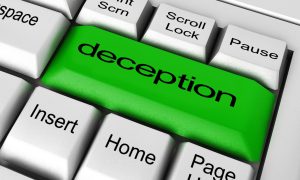Assessed valuations are hitting Kansas property owner mailboxes, and many owners are finding a big difference between the value of their properties last year and the value this year.
The assessed valuations are important, because counties, cities, and school districts use them to determine tax rates. When property values increase and the tax rate stays the same, home and business owners pay more in taxes.
State lawmakers passed a property tax lid that limits the amount of taxes cities and counties can collect without a vote of the people. However, there are two bills before the legislature that could revoke the tax lid.
County clerks report assessed valuations to the state by July 15, so state officials aren’t sure how valuations will impact the 2017 tax year, according to Roger Hamm, the deputy director of the Kansas Department of Revenue’s division of property valuation.
The largest chunk of property taxes in most places is used to fund schools. Property owners pay 20 mills to the state for schools in addition to local option mills and bond issues levied by some school districts. If lawmakers increased the mill rate from 20 mills to 21 mills for schools last year, that would bring in an additional $33 million. Even without a tax rate increase, a statewide valuation increase of 2. 5 percent last year brought in an additional $16 million in ad valorem revenues for schools.
This Year’s Numbers
Valuations may be even higher this year.
Values skyrocketed in Johnson County, for example. In Kansas’ most populated county, property on average increased nearly 10 percent. The average home sale price jumped from $238,000 in 2015 to $301,173 in 2016. In Sedgwick County, the median home sale price also increased from $149,900 in 2015 to $155,000. Most agricultural parcels increased by an average of 8 percent in Sedgwick County.
Not everyone is thrilled with the bump in property valuations.
Steve Shute serves on the city council in Gardner, a town in southwest Johnson County. He posted on Facebook his frustrations about the 21 percent spike in his home’s valuation.
“I’m getting calls and emails and posts from all over the state, from Cherokee, Sedgwick, Saline. They’re all experiencing the same kinds of increases,” Shute says. “It tells me there’s something else going on.”
Backdoor Tax Increases
He called the large spikes in assessed valuations backdoor tax increases. City councils, school boards, county commissions and state legislators get access to additional cash without having to take an unpopular vote to increase tax rates.
“The problem here is not property tax rates, although they are exorbitant,” Shute says. “The property appraisal process–if you look back at the last 10 years, our property values have increased 206 percent. It’s far outpaced inflation. It’s outpaced demographic shifts and population shifts.”
County appraisers are responsible for determining the values of property within their counties, and then their budgets are partially derived from property taxes.
“I think it’s ridiculous that the same people who benefit the most from over assessing of properties are the ones who manage the process,” Shute says. “Why don’t we have an objective third party do this?”
Property owners can appeal their property valuations within 30 days of receiving their valuation notices.




